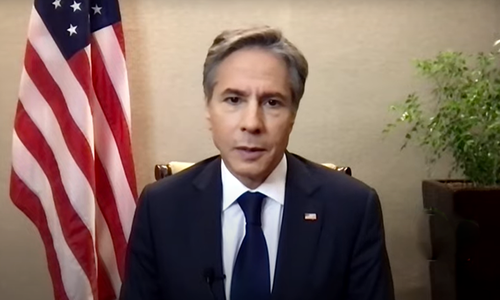IT has been 10 months since America’s exit from Afghanistan last August. The world now engages with the Afghan Taliban as the country’s de facto government. But there’s no move to recognise the Taliban as Afghanistan’s legitimate, de jure rulers.
Editorial: Taliban recognition
Taliban supporters argue that if the world can recognise governments run by dictators or kings, then why not the Taliban dispensation? Given the manner in which the Taliban ran their government in the late 1990s, the world first wants to see if they can make progress on three critical elements: forming an inclusive government; respecting women rights, especially girls’ education; and ensuring that Afghan soil is not used by terrorist entities.
There is also a legal issue. The UN Security Council Resolution 1267 had imposed sanctions on several Taliban leaders. Until the Taliban leadership is delisted from the sanctions’ regime, the world might be reluctant to extend formal recognition to the Taliban government. This poses a dilemma. If the Taliban government is ostracised, and it fails or becomes weak, terrorist forces will regain ground in Afghanistan. On the other hand, if they are incentivised, they would be in a better position to counter terrorist groups. However, public opinion in the US and some other countries opposes the Taliban and their philosophy, and is not likely to allow these governments to extend help to the Taliban.
The most disturbing corollary of this dilemma is the worsening humanitarian situation — compounded by the recent earthquake — and likely economic collapse. Prices are rising. Banks do not have money. Joblessness is rampant. Food and medicine supplies are urgently needed. The Taliban government does not have money to pay civil servants or soldiers. Violence against ethnic and religious minorities has increased.
Read: Dealing with the Afghan crisis
To avert a humanitarian disaster and ensure stability, all stakeholders — the Taliban government, regional countries, and the international community — have a role to play.
First, it falls upon the Taliban to make visible progress towards forming an inclusive government. Some anti-Taliban Afghan groups have launched a national resistance movement. It would be in the Taliban’s own interest to carry along other ethnic groups so that the country doesn’t descend again into civil war. The Taliban’s approach to women’s rights is also quite disconcerting for the international community. Addressing the UN Human Rights Council earlier this month, the UN High Commissioner for Human Rights stated that Afghanistan was witnessing the “institutionalised systematic oppression of women”. The Taliban must review the stringent restrictions imposed on women’s participation in public and political life.
Our main concern should be the well-being of ordinary Afghans.
Meanwhile, several terrorist entities are reasserting their footprint in the country. The militant Islamic State’s Khorasan chapter has recently carried out violent terrorist attacks in public places in Kabul and other cities. It poses a danger to Tajikistan, Uzbekistan and Pakistan.
The IS-K’s growing profile has also raised question marks over the Taliban’s ability to ensure that Afghan soil is not used to launch terrorist attacks abroad.
Under the Taliban’s watch, the Tehreek-i-Taliban Pakistan is entrenched in eastern Afghanistan and is using the Taliban’s good offices to negotiate with Pakistan. Some of the demands they have reportedly put forth, such as annulling the merger of the tribal areas with KP, are simply not acceptable to the people of Pakistan, who have not forgotten how mercilessly the TTP have shed the blood of their country’s innocent citizens, including schoolchildren.
Read: Afghanistan’s humanitarian disaster
The second set of stakeholders of peace in Afghanistan include the latter’s neighbours and near neighbours, who are coordinating closely with each other, especially with regard to humanitarian assistance. However, this aid is not enough. The Taliban regime needs technical and financial support to run the country, for which the region will need to play its part.
The third major stakeholder is the US (and Europe) that needs to review its present coercive economic approach, which could plunge the country back into civil war, allowing terrorist organisations looking for safe havens to have a field day.
Pakistan’s principal concern should remain the well-being of ordinary Afghans, who deserve peace and stability after four decades of war. Apart from humanitarian assistance, Pakistan must also provide economic opportunities to the Afghans, and facilitate Afghanistan to become a transit hub between Central and South Asia.
Pakistan should also exhort the world to not abandon the Afghans. Abandoning Afghanistan could lead to a mass exodus of Afghans towards neighbouring countries, and create a security vacuum that in the past was filled by terrorist groups. This will adversely affect not just Pakistan and its neighbours but the entire world as well.
The writer, a former foreign secretary, is DG, Institute of Strategic Studies Islamabad, and the author of Diplomatic Footprints.
Published in Dawn, June 23rd, 2022

















































